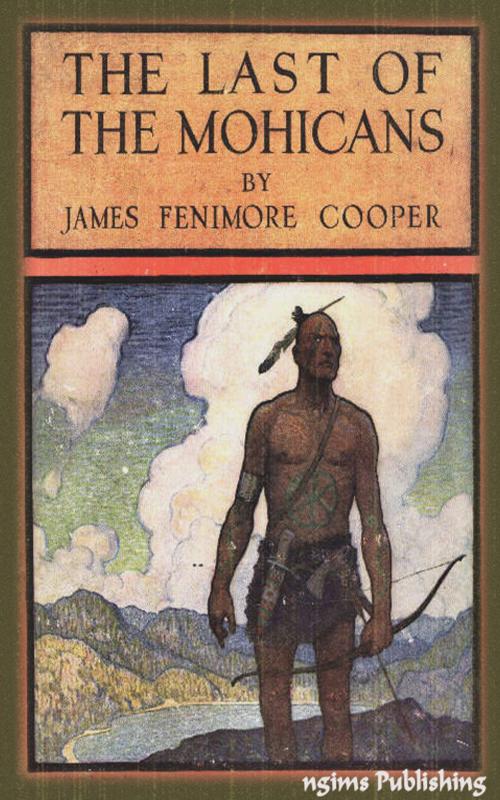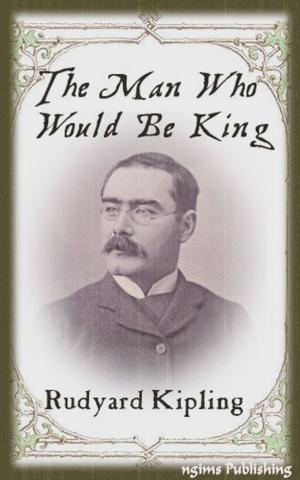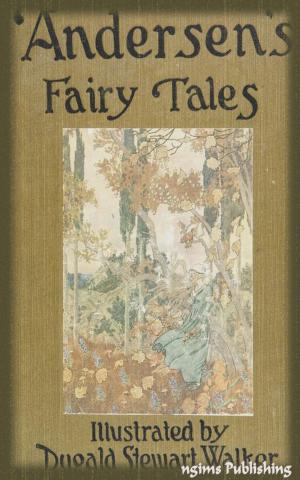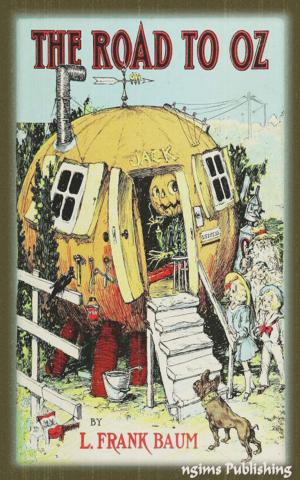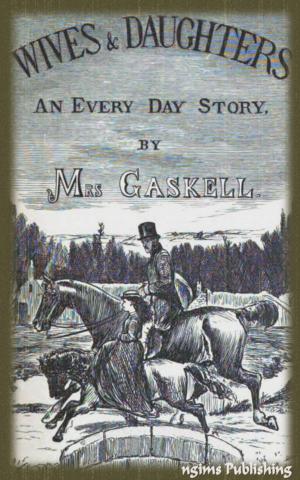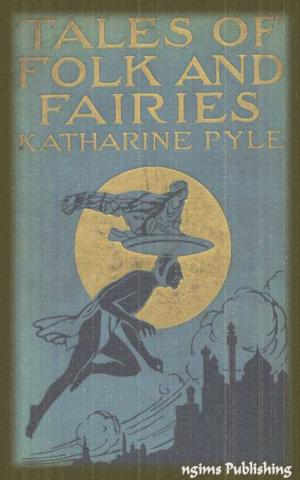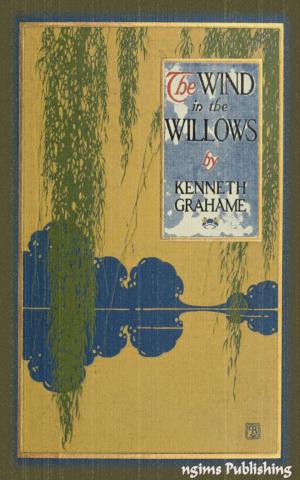The Last of the Mohicans (Illustrated + Audiobook Download Link + Active TOC)
Fiction & Literature, Literary Theory & Criticism, Native American, Historical| Author: | James Fenimore Cooper | ISBN: | 9781618264060 |
| Publisher: | ngims Publishing | Publication: | August 5, 2012 |
| Imprint: | Language: | English |
| Author: | James Fenimore Cooper |
| ISBN: | 9781618264060 |
| Publisher: | ngims Publishing |
| Publication: | August 5, 2012 |
| Imprint: | |
| Language: | English |
FEATURES:
• Includes beautiful artworks and illustrations
• A link of a FREE audio book to download at the end of the book
• Active Table of Contents for an easy navigation within the book
• Manually coded and crafted by professionals for highest formatting quality and standards
Check out ngims Publishing's other illustrated literary clazzics. The vast majority of our books have original illustrations, free audiobook download link at the end of the book, navigable Table of Contents, and are fully formatted. Browse our library collection by typing in ngims or ngims plus the title you're looking for, e.g. ngims Gulliver's Travels.
Free ebooks on the web are not organized for easy reading, littered with text errors and often have missing contents. You will not find another beautifully formatted clazzic literature ebook that is well-designed with amazing artworks and illustrations and a link to download free audiobook for a very low price like this one. Our ebooks are hand-coded by professional formatters and programmers. Ebook development and design are the core of what our engineers do. Our ebooks are not the cheap flat text kind, but are built from the ground up with emphasis on proper text formatting and integrity.
The Last of the Mohicans: A Narrative of 1757 is a historical novel by James Fenimore Cooper, first published in February 1826. It is the second book of the Leatherstocking Tales pentalogy and the best known. The Pathfinder, published 14 years later in 1840, is its sequel. The story takes place in 1757, during the French and Indian War (the Seven Years' War), when France and Great Britain battled for control of the North American colonies. During this war, the French called on allied Native American tribes to fight against the more numerous British colonists.
Cooper named a principal character Uncas after a well-known Mohegan sachem (a head chief) who had been an ally of the English in 17th-century Connecticut. Cooper seemed to confuse or merge the names of the two tribes - Mohegan and Mohican. Cooper's well-known book helped confuse popular understanding of the tribes to the present day. After the death of John Uncas in 1842, the last surviving male descendant of Uncas, the Newark Daily Advertiser wrote, "Last of the Mohegans Gone," lamenting the extinction of the tribe. The writer did not realize the Mohegan people still existed. They continue to survive today and are a federally recognized tribe based in Connecticut. The Mohican were based in the Hudson River Valley and continue to survive today as a federally recognized Indian tribe as the Stockbridge-Munsee Community in Wisconsin.
The novel was one of the most popular in English in its time, although critics identified narrative flaws. Its length and formal prose style have limited its appeal to later readers, yet The Last of the Mohicans remains widely read in American literature courses. (Wikipedia)
FEATURES:
• Includes beautiful artworks and illustrations
• A link of a FREE audio book to download at the end of the book
• Active Table of Contents for an easy navigation within the book
• Manually coded and crafted by professionals for highest formatting quality and standards
Check out ngims Publishing's other illustrated literary clazzics. The vast majority of our books have original illustrations, free audiobook download link at the end of the book, navigable Table of Contents, and are fully formatted. Browse our library collection by typing in ngims or ngims plus the title you're looking for, e.g. ngims Gulliver's Travels.
Free ebooks on the web are not organized for easy reading, littered with text errors and often have missing contents. You will not find another beautifully formatted clazzic literature ebook that is well-designed with amazing artworks and illustrations and a link to download free audiobook for a very low price like this one. Our ebooks are hand-coded by professional formatters and programmers. Ebook development and design are the core of what our engineers do. Our ebooks are not the cheap flat text kind, but are built from the ground up with emphasis on proper text formatting and integrity.
The Last of the Mohicans: A Narrative of 1757 is a historical novel by James Fenimore Cooper, first published in February 1826. It is the second book of the Leatherstocking Tales pentalogy and the best known. The Pathfinder, published 14 years later in 1840, is its sequel. The story takes place in 1757, during the French and Indian War (the Seven Years' War), when France and Great Britain battled for control of the North American colonies. During this war, the French called on allied Native American tribes to fight against the more numerous British colonists.
Cooper named a principal character Uncas after a well-known Mohegan sachem (a head chief) who had been an ally of the English in 17th-century Connecticut. Cooper seemed to confuse or merge the names of the two tribes - Mohegan and Mohican. Cooper's well-known book helped confuse popular understanding of the tribes to the present day. After the death of John Uncas in 1842, the last surviving male descendant of Uncas, the Newark Daily Advertiser wrote, "Last of the Mohegans Gone," lamenting the extinction of the tribe. The writer did not realize the Mohegan people still existed. They continue to survive today and are a federally recognized tribe based in Connecticut. The Mohican were based in the Hudson River Valley and continue to survive today as a federally recognized Indian tribe as the Stockbridge-Munsee Community in Wisconsin.
The novel was one of the most popular in English in its time, although critics identified narrative flaws. Its length and formal prose style have limited its appeal to later readers, yet The Last of the Mohicans remains widely read in American literature courses. (Wikipedia)
